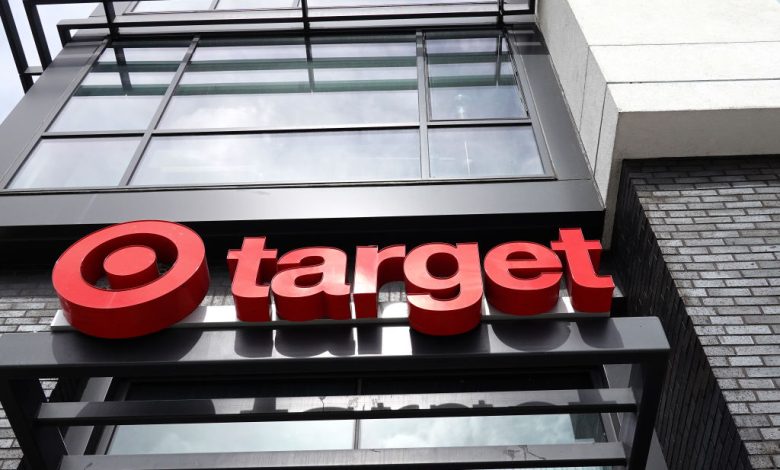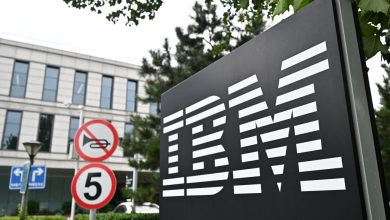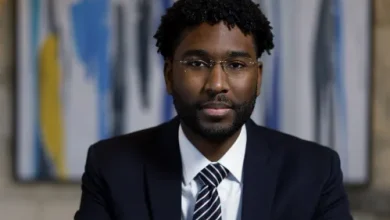Target Layoffs: Company Announces 1,800 Corporate Roles Will Be Cut As It Seeks Growth Amid CEO Transition


In a move marking the first major round of Target layoffs in over a decade, incoming CEO Michael Fiddelke announced that the company will cut 1,800 corporate jobs for an 8% reduction in its corporate workforce.
According to CNBC, Fiddelke shared the news in a memo to employees at Target’s Minneapolis headquarters on Thursday, Oct. 23, 2025. He said the retailer is focused on regaining growth after four years of roughly stagnant sales.
“This spring, we launched our enterprise acceleration efforts with a clear ambition: to move faster and simplify how we work to drive Target’s next chapter of growth,” Fiddelke wrote.
“The truth is, the complexity we’ve created over time has been holding us back. Too many layers and overlapping work have slowed decisions, making it harder to bring ideas to life,” he continued.
A Target spokesperson reportedly told CNBC that the eliminated roles include about 1,000 employee layoffs and roughly 800 positions that will not be refilled. Affected employees will receive notice on Tuesday, Oct. 28, 2025.
Target Layoffs Follow Leadership Change And Sales Decline
As AFROTECH™ reported on Aug. 20, 2025, Fiddelke — Target’s chief operating officer who started as an intern 20 years ago — will succeed current president Brian Cornell as CEO on Feb. 1, 2026.
Cornell, who took the reins in August 2014, led efforts to remodel stores and strengthen Target’s online business to compete with Amazon. He said he plans “to step back, recharge, spend a lot more time with my family, a lot fewer nights in hotels, and be a great supporter of Michael and the team for the rest of my life.” He will transition to the role of executive chairman.
The change in leadership and pending layoffs come as Target faces a decline in sales, lower store traffic and stock performance, inventory challenges, and customer backlash. In January, the company ended its diversity, equity, and inclusion (DEI) initiatives, sparking consumer boycotts, including one led by Minnesota-based civil rights attorney and activist Nekima Levy Armstrong and another by Atlanta Pastor Jamal Bryant that lasted over 200 days, AFROTECH™ previously told you.
During this time, both the Congressional Black Caucus and activist Rev. Al Sharpton met with Target, urging the retailer to deliver tangible DEI results. Sharpton described his April 17, 2025, meeting with Cornell in New York as “very constructive and candid.”
However, Bryant noted that Target had met only one of the four demands from his Target Fast campaign — fulfilling its $2 billion commitment to Black businesses “through products, services, and Black media buys” — and the church leader extended the boycott as a result.
The other demands included a $250 million investment spread across 23 Black-owned banks, restoring Target’s “franchise commitment to DEI,” and creating retail-focused community centers at 10 Historically Black Colleges and Universities to teach business skills at every level, per AFROTECH™.
Target Layoffs Part Of Broader Effort
Compared with its retail competitors like Costco and Walmart, Target generates a smaller share of sales from groceries and other essentials and leans more toward discretionary items, making it more likely to suffer from economic and consumer sentiment shifts, CNBC reports.
The outlet notes that Target’s shares have dropped by 65% since its all-time high in late 2021 due to the challenges and criticism surrounding it.
Fiddelke said restructuring is only part of the company’s broader effort, emphasizing the need for “new behaviors and sharper priorities” to strengthen Target’s “leadership in style and design” and speed up execution. He added that Target aims to enhance technology “to enable our team and delight our guests,” “lead with merchandising authority” and deliver an elevated guest experience.
According to CNBC, those employees affected by the layoffs will continue receiving pay and benefits through Jan. 3, 2026, along with severance packages. The cuts did not impact store or supply chain roles.
“Decisions that affect our team are the most significant ones we make, and we never make them lightly,” Fiddelke wrote in the memo. “I know the real impact this has on our team, and it will be difficult. And, it’s a necessary step in building the future of Target and enabling the progress and growth we all want to see.”




